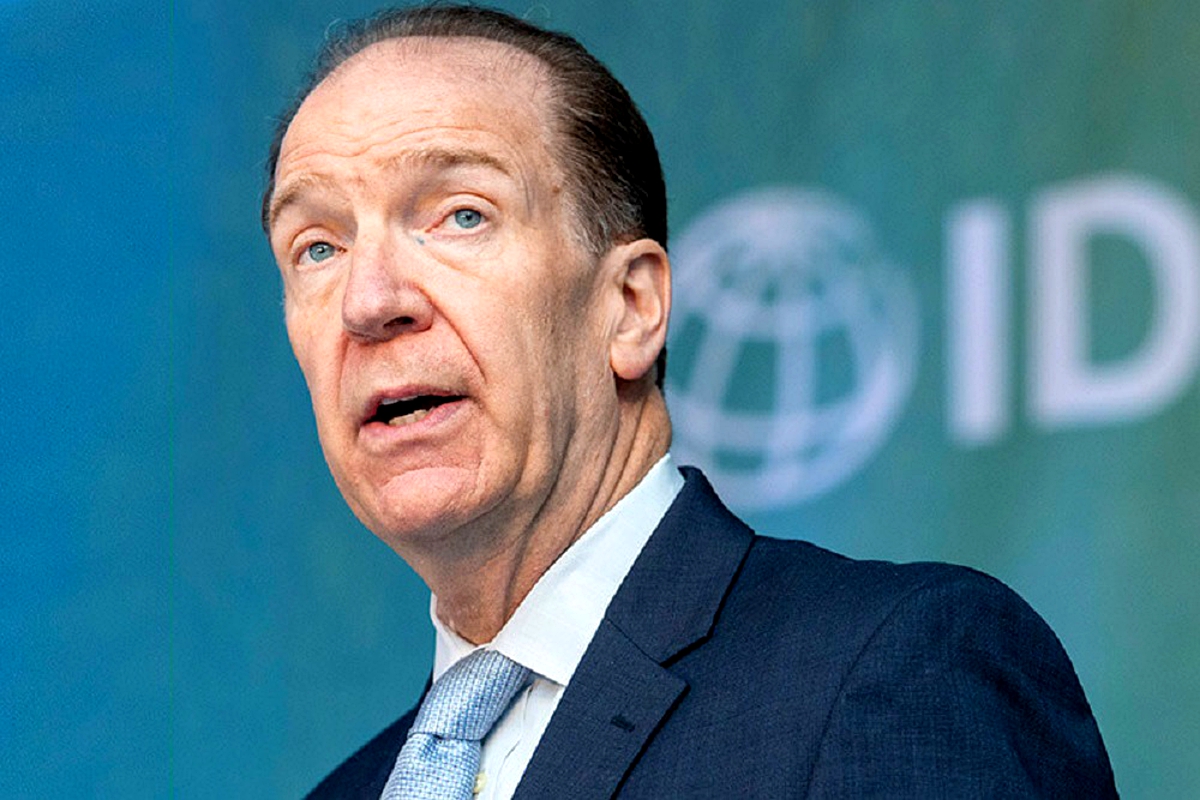THE World Bank Group, an institution that is a vital source of financial and technical assistance to developing countries around the world has warned against the spike in debt loads in emerging markets due to the COVID-19 pandemic.
business
Dec. 29, 2021
NEO SENOKO
3 min read
World Bank warns against spike in debt for poor countries

World Bank Group President, David Malpass
Story highlights
The challenge, the Bank says is acute in low-income countries, half of which were in debt distress or at high risk of debt distress before the pandemic.
This comes after a decade that saw the fastest, biggest and broadest expansion of debt levels around the world, according to the Global Economic Prospects.
“As policy makers in emerging market and developing economies look to shift from pandemic response to recovery, they will need to be careful not prematurely withdraw fiscal support and look to increase the efficiency of public spending, all while balancing the need for debt sustainability,” said David Malpass, the World Bank Group President.
Still, he said the debt burden will be felt long after the virus abates, as servicing costs rise, slowing recoveries and hindering efforts to address other development challenges, including climate change.
Lesotho is among countries that were already struggling with debt even before the advent of the pandemic.
The country’s debt portfolio magnitude has increased significantly, ending at M19 320 billion as at March 2020.
This was revealed by the report of the Auditor General on the consolidated financial statements for the year ended March 31, 2020.
The increase represents 22 percent higher than the previous figure of M15 870 billion. The significant increase is on long-term debt.
“There was an expansion on external debt and the contributing factors are new borrowings of M4.702 billion as well as the negative impact on exchange rate applied on closing balances.
“The opening debt stock was M12. 661 billion and closing balance was M15. 632 billion as at March 31, 2020,” said Monica Besetsa, the acting Auditor General in her report.
The Auditor General’s report presents the results of audit of the Consolidated Financial Statements for the year ended March 31, 2020 and various other audits undertaken in ministries, departments, agencies and statutory bodies subject to audit.
Enjoy our daily newsletter from today
Access exclusive newsletters, along with previews of new media releases.
The Consolidated Financial Statements for the year under review further showed the opening balance of M3.209 billion for domestic debt and new issues of treasury bills, treasury bonds and fiscal bills amounted to M2.508 billion while principal repayments were M2.029 million resulting into a closing balance of M3.688 billion. Interest paid on domestic debt amounted to M265 million.
The World Bank further explained that there is more to debt than meets the eye, if one goes by the findings of the Debt Transparency in Developing Countries report. That is because reporting on debt is not a very straightforward exercise.
Global debt surveillance today depends on a patchwork of databases with different standards and definitions. They contain large gaps and the report shows that publicly available tallies of debt stocks in low income countries can vary by as much as 30 percent of a country’s GDP because of divergent definitions and standards in local and international databases.
Tailored for you






